How Does VAT Affect the Commercial Real Estate Sector in the UAE?

Value-added-tax or VAT refers to an indirect tax levied on the supply or consumption of goods or services within the UAE. The implementation of VAT commenced in January 2018 in the UAE at a standard rate of 5%. Almost every sector in the UAE is affected by the VAT and commercial real estate is not an exception.
However, the implications of VAT for commercial real estate are much more complicated than other sectors. One reason is that this sector spans many activities such as the purchase or sale of land, leases, property management, etc. Most commercial real estate companies deal both in commercial and residential real estate which further complicates the process.
The commercial real estate registration for VAT in the UAE also hinges on factors like the property type, intended use, as well as transaction timing. This blog explores the effects of VAT on the commercial real estate sector in the UAE in detail.
This information will help you navigate the complex commercial real estate VAT regulations in the region safely so keep on reading till the end.
- Important Points to Consider When Calculating Commercial Real Estate VAT
- Date of Supply
- Profit Margin Perspective
- Cash Flow
- Transitional Provisions
- Application of VAT To Commercial Real Estate
- Different Cases for Supply of Commercial Real Estate and Their VAT Implications
- Effects of Cancellation of the Supply of Commercial Real Estate
- VAT Special Payment Process for the Sale of Commercial Real Estate in the UAE
- VAT on Lease and Other Services Related to Commercial Real Estate
- VAT on Commercial Buildings as a Capital Asset
- VAT Deregistration
- Responsibilities of Commercial Property Owners and Tenants
Important Points to Consider When Calculating Commercial Real Estate VAT
The scope of VAT is mainly due to the supply based on its actual location. Here are a few points that you need to keep in mind in this regard
- Date of Supply
When calculating VAT you need to keep the date of supply in mind which is the date on which the commercial real estate was delivered. It can also be the date on which the payment was made or the date of the issue of the invoice.
Other factors like pressure or profit margins, complexities associated with mixed operations, and cash flow constraints should also be taken into account by the real estate companies.
- Profit Margin Perspective
In this perspective, certain real estate transactions are considered exempt supplies. This means the companies will not be able to claim back any VAT and their costs would increase by 5% which would squeeze the profit margins.In case the company deals in a mix of commercial and residential real estate supplies that are zero-rated or exempt, they have to apply the partial exemption rule when claiming input VAT incurred allowing them to reclaim only a portion of the input VAT.
- Cash Flow
Another important factor is the cash flow which is especially important for developers who are not able to collect input VAT incurred. These companies have to find additional liquidity sources to fund this. The reason is that as the majority of the payment for off-plan commercial real estate is collected after development, the 5% paid on input tax to suppliers or builders would need to be paid upfront while collected in the later periods.Moreover, for projects treated as capital assets, the input VAT is claimable over the life of the asset and not on the next VAT return. From the industry’s perspective, this extra 5% burden on each transaction on top of the 4% DLD fee could potentially hurt the market. This also projects a downturn in commercial real estate sales during the first year of the VAT implementation.
- Transitional Provisions
Article No 80 of the Federal Law No.8 of 2017 concerning VAT details the rules relating to the transitional provisions. The purpose is to avoid invoices being issued or payments being made before the date on which the VAT law comes into effect for supplies which would effectively take place after the effective date of the VAT to avoid tax.For example, if a contract runs post 1 January 2018 but does not state VAT in the supply then the VAT should be invoiced separately to the customer for the supplies made post 1 January 2018. Application of VAT To Commercial Real EstateThe supply of any commercial real estate is subject to 5% VAT in the UAE. The supply may include leasing or selling a property. The seller or supplier has to charge VAT on the total amount that they received for the supply taking installments if any into account.The supplier is also entitled to recover any VAT which was paid on costs related to the supply.
Different Case for Supply of Commercial Real Estate along with Their VAT Implications
Following are a few cases involving the supply of commercial real estate along with its VAT implications
- Renting out commercial real estate which is a taxable supply is subject to 5% VAT.
- The sale of commercial real estate along with the tenants. This is considered as the transfer of an ongoing business and it involves no VAT payments since it is out of the scope within the purview of the UAE VAT.
- Developers selling commercial real estate which is a taxable supply are also subject to 5% VAT. The developer issues a tax invoice to the buyer for the tax amount and collects it which includes VAT plus the sale amount.
- Anyone else selling taxable commercial supplies is also subject to 5% VAT. In this case, the seller has to issue the tax invoice but they are not responsible for collecting VAT. Instead, the buyer pays it to the FTA directly.
Effects of Cancellation of the Supply of Commercial Real Estate
This happens in cases like when a planned development does not go ahead and the supplier has to cancel the commercial real estate supply. In this situation, the supplier must refund the customer and also issue a tax credit note. This cancels out the output tax which was reported in the past.
If the supplier is keeping the payments, then they have to determine the valid reason for it as well as the relevant VAT treatment. In cases when the customer payments are considered as the cost of a service that the supplier provided, 5% VAT will be applied without having to issue a tax credit note.
VAT Special Payment Process for the Sale of Commercial Real Estate in the UAE
Commercial real estate properties that are sold by any supplier, other than the developer of that property, are entitled to a special payment process. These are also subject to 5% VAT.
This policy doesn’t apply to
- Sale or lease of residential real estate
- Lease of commercial properties
- Sales of commercial property by the developer of that property
- The sale of a commercial property with tenants to a taxable buyer and qualifies as a transfer of a business.
A tax invoice by the seller is issued to the buyer for the property as normal. But before completing the ownership transfer with the Land Department, it is mandatory for the buyer to pay the 5% VAT due on the purchase to the FTA. As an alternative, payment may be made via a bank nominated by FTA.
After paying VAT, the buyer will receive a payment transaction number. In the case of bank payment, the buyer will need to retain proof of payment.
The buyers must show this document to the Land Department to complete the ownership transfer.
After that, the seller has to report the output tax on the property in their VAT return in the normal way, and will then also include the same amount as an adjustment. This adjustment will help avoid double payments to the FTA.
Normal VAT rules are applicable for other types of property transactions.
VAT on Lease and Other Services Related to Commercial Real Estate
5% VAT is applied to the lease of commercial real estate. The owner of the lease must register for VAT if their supply increases the mandatory threshold for VAT registration. The owner is allowed to recover VAT which is paid on expenses related to the commercial real estate renting business.
Some other services related to commercial real estate that are subject to 5% VAT include building maintenance, real estate agent fees, owner association services, electricity, water, gas, and cooling.
VAT on Commercial Buildings as a Capital Asset
A commercial building is treated as a capital asset when it is purchased for more than AED 5 million. In this case
- The buyer will need to 5% VAT to the seller which they can then recover on their tax returns related to the purchase period.
- The use of the building will be monitored for 10 years.
- If the building is used for another purpose, it can affect their eligibility to recover VAT.
VAT Deregistration
You are allowed to deregister from VAT if
- The taxable supplies or expenses of the business are below AED 187,500 in 12 months and are not projected to increase in 30 days.
- The value of taxable supplies is below the mandatory registration threshold i.e., AED 375,000.
- They have stopped making the taxable supplies or ceased their operations.
According to Article 21 of the VAT law the registration a business must apply for registration within 20 days of the event that allows their deregistration. Before applying you need to settle any tax liabilities or tax returns. The deregistration application is submitted through the FTA e-services portal which is reviewed and approved within 20 business days.
Responsibilities of Commercial Property Owners and Tenants
Here are the duties of commercial property owners and tenants under the UAE VAT law
- Owners of residential real estate do not have to register for VAT. However, they have to register if they are involved in other taxable activities.
- Non-residential real estate owners must register for VAT if the worth of their taxable supplies exceeds AED 375,000 in 12 months.
- Real estate owners must keep accurate records of business transactions as well as activities for at least 5 years.
- They have to file tax returns and pay the taxes within the time limit set forth by the tax authority.
- They have to inform FTA immediately if there are any errors or last-minute changes in their tax registration or returns.
Conclusion
Ensuring VAT compliance is a complex endeavor, especially in the dynamic commercial real estate market of the UAE. You need to identify the underlying supply transactions and then apply the correct VAT to make sure there are not any violations on your part.
By knowing how VAT affects the commercial real estate sector in the UAE and considering its possible implications you can easily navigate this complex arena without making major errors.
You can visit Alpha Pro Partners right now to get top-quality VAT implementation and routine VAT services all over the UAE.
Disclaimer
This article is written in general terms and, therefore, cannot be relied on to cover specific situations; the application of the principles set out will depend upon the particular circumstances involved. We recommend that you obtain professional advice before acting or refrain from acting on any of its contents.

.webp)


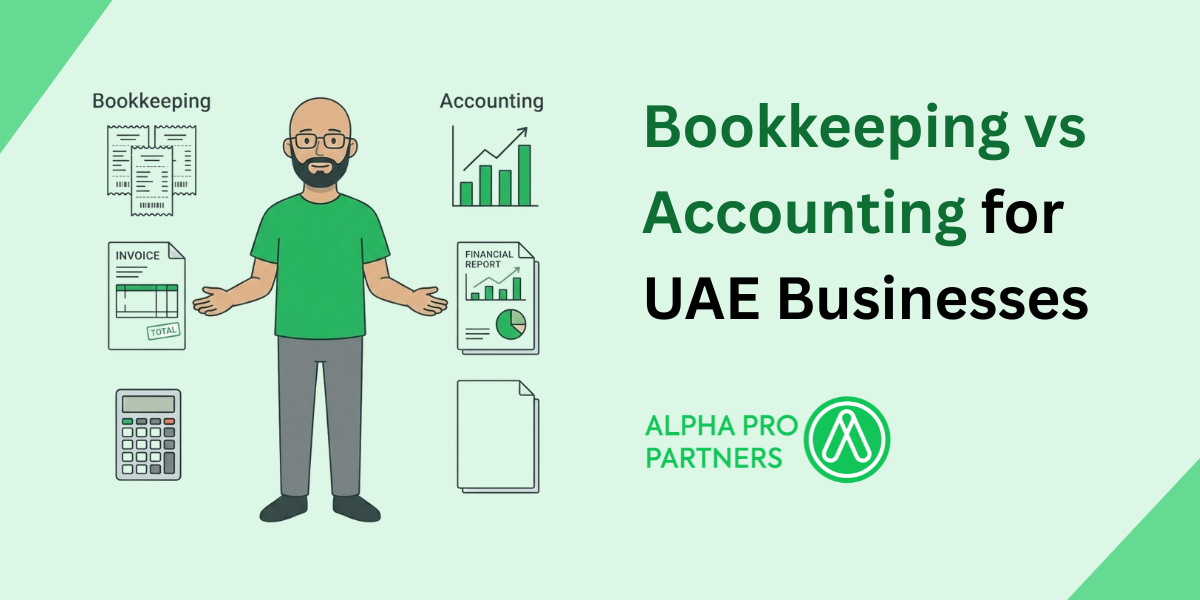
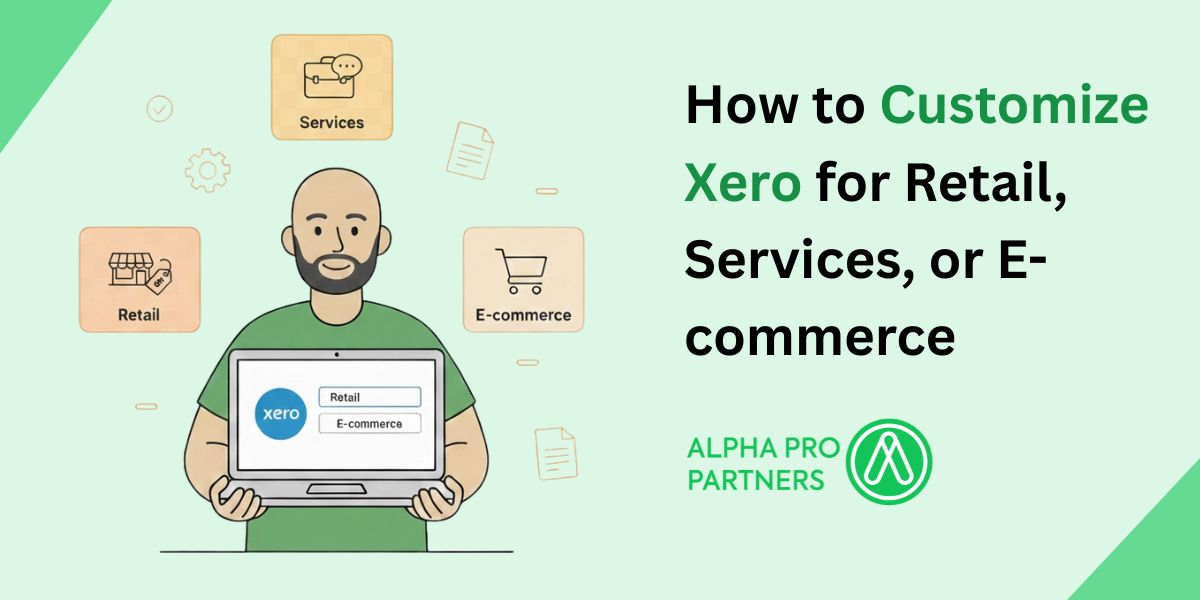

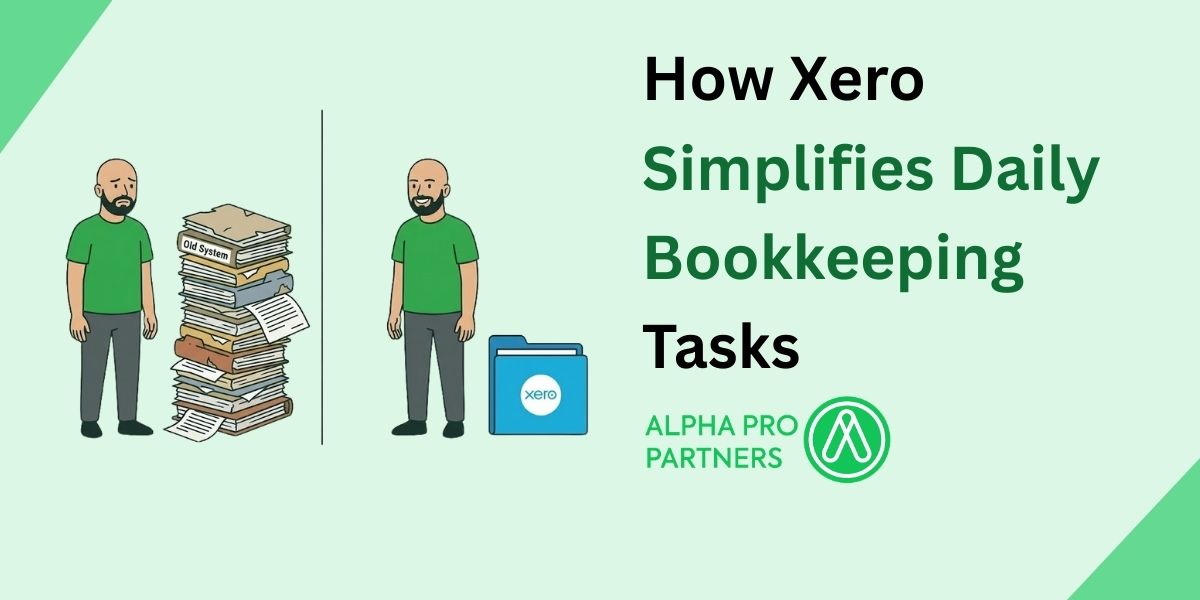
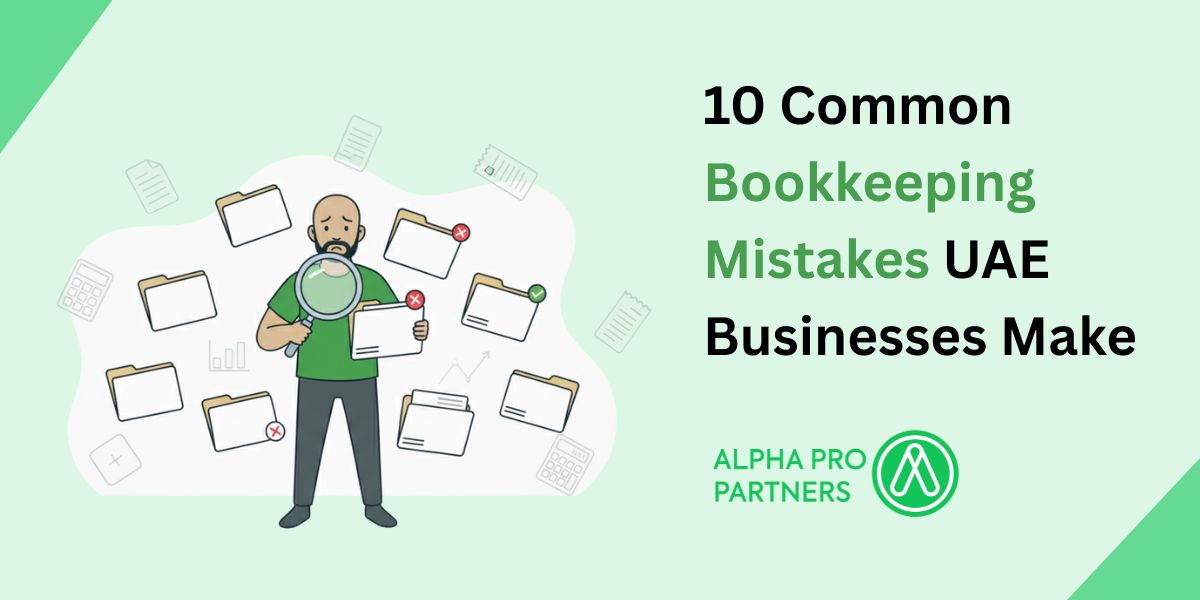
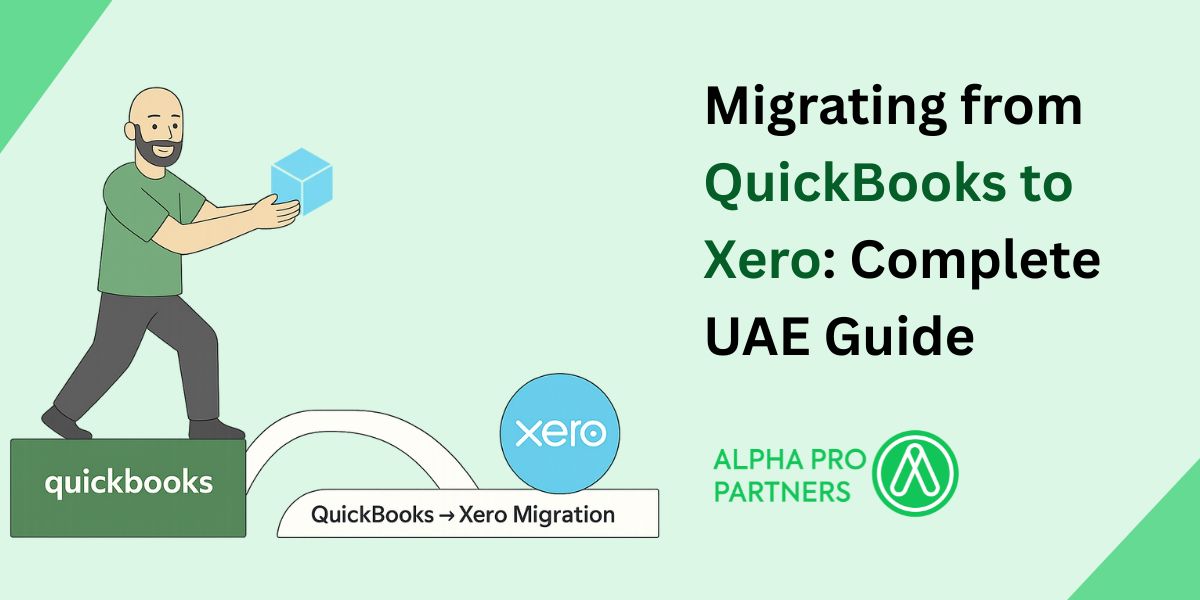








.webp)
.webp)


.png)
.png)
.png)
.png)
.png)

.png)
.png)



.png)
.png)





.jpg)


.jpg)





.png)
.png)






.png)


